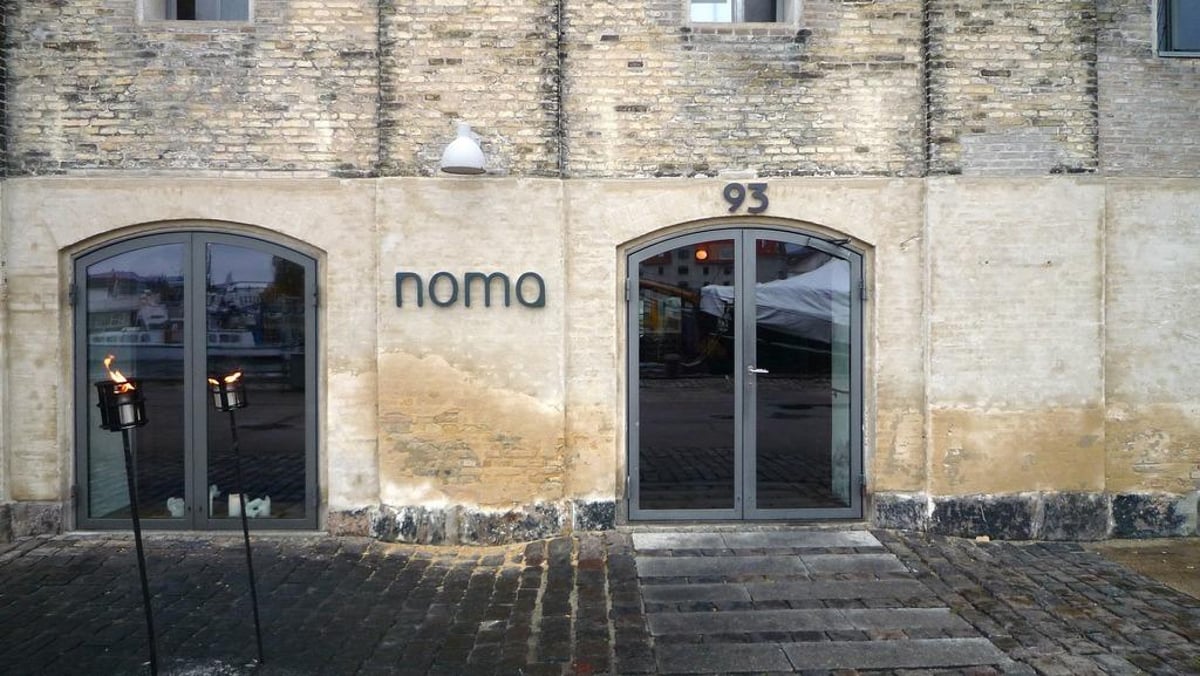
Fine dining isn’t at a crossroads because of Noma. We are.
Since the announcement of Noma closing, several articles have been written touting its accolades, innovation, and alleged toxic workplace. These discussions spawn nostalgia and clickbait headlines, but they aren’t focused on what I believe is the most important fact—Noma closing isn’t changing the food world that much.

Noma began as a way to “challenge the Old World order of gastronomy” and create a new cuisine. To do this, Redzepi turned to the oldest cuisine of all—foraging. He did not invent this process; Indigenous people did. And while “foodies” and food media may see him as a messiah for “terroir cooking,” foraging has become not a connection to our past but a colonized novelty.
Additionally, Noma was created for the elite, not for the rest of us. The majority of us—me included—have never eaten there and never will. It is expensive, far away, and wildly difficult to get into, factors that are not unique to Noma but are still barriers. These elite—or aspiring elite, as many of us are when we indulge in fine dining for an evening—aren’t equipped nor educated on how to live our regular lives in the culinary style that Noma offers. To be honest, we probably don’t want to. Thus in the two decades that Noma has existed, the Western world might have become more aware of foraging, but that’s the extent of it.
This isn’t Noma’s fault, at least not completely.
Mainstream fine dining began in 18th century France as a way to “ape the aristocracy.” It was a conduit into a lavish world that most could never be a part of, but every now and then, they played dress-up and pretended to be.
Hundreds of years later, fine dining at its core hasn’t changed all that much. And that’s okay. Every vocation has a branch for the upper echelon—fashion, hotels, art. We live in a world defined by capitalism, and that means that some people can spend a lot of money on food (or clothes, or hotels, or paintings) and some can’t. To operate in fine dining means to pander to a higher class who wants a singular, memorable evening and then moves on. As ambitious as Noma has been in its pursuit of foraging, it might have been foolish to seek to alter the way diners live their lives. That would have meant changing the entire Western world’s food system, which isn’t Noma’s problem to solve.
The sad reality is that it took a White man to tell us to forage our food when for generations, foraging existed. In many parts of the world, it still does. Redzepi has spent time with Indigenous communities in Australia and Mexico. For those of us living vicariously through Instagram, those experiences appeared educational and fun, but temporary. Touristy. Maybe his learnings reflected in one of Noma’s dishes, maybe it didn’t, but a gap between his world and ours still remains. When I spoke to people who have eaten at Noma, none of them said they left ready to become foragers. They enjoyed the creativity that Redzepi brought to foraging and of course, the food was delicious, but at the end of the day, that is the goal of any restaurant—make good food. And that is perfectly fine! But we shouldn’t give Redzepi so much credit for bringing foraging to the masses when we all, myself included, turned a blind eye to the people who inhabited our lands first, who had been doing it already, who still do it. We shouldn’t act like we will all suddenly start foraging upon Noma’s closure because we won’t. Our food systems are still widely unchanged.. Foraging takes long hours and physical labor, and in the unending rush that defines capitalism, we don’t value slowing down and moving our bodies in any other way than to order groceries online or at most, go to the store to purchase food that has traveled from miles, sometimes oceans away. Foraging is a spiritual, connective process, but we simply don’t have time.
That is why, perhaps, we put Noma on a pedestal, because Redzepi and his team created the time and did the long hours and physical labor to forage and cook seasonally. They did for us what we are unable to do ourselves, so we forget momentarily that only a few will ever experience this type of food. But if Noma isn’t for the everyday person, is closing it that tragic?

Pete Wells writes that Noma is perhaps one of the most copied restaurants there is. Many dining rooms altered their culinary and cutlery aesthetic to match Noma’s, and “seasonality” became a hackneyed buzzword to describe eating the way many non-Western countries do. In my mother’s hometown in India, seasonal eating is just eating—a daily ritual to ensure survival and joy. So who did these restaurants really copy? Who did Noma really copy?
It’s also important to note that Redzepi isn’t a villain for how he treated employees, at least not the only villain. If you’ve never worked in fine dining, it is difficult to understand how unbelievably taxing it is. Creating innovative food that looks and tastes next-level day after day is an extremely rigorous process. It is a rigor that diners may know exists but can’t internalize. Noma was no different. Net profit margins for restaurants average 2-5%; for fine dining, they are even lower (a line cook I used to work with told me it was around 1%, but that is admittedly an anecdote). Most cooks work longer hours than they get paid for, and interns are tasked with repetitive but vitally important tasks that uphold restaurant standards while also teaching discipline and consistency. I once worked (for free) at a very famous restaurant in Berkeley, California where my only job was to peel apples. For seven hours a day, I peeled apples into exact rounds that would then be baked whole for that season’s dessert. I hated it, and I knew that when a diner saw that perfect sphere on their plate, they wouldn’t think twice about it. But that is the hidden labor cost of fine dining—making the tiniest details like the roundness of an apple seem like a given.
To make food at that level, to get the Michelin star(s), to get at the top of the best-of lists, you have to work harder. Of course, there should be limits. I believe interns should be paid, and yelling at colleagues is unacceptable. But Noma did not invent this way of working and should not be scrutinized more than any other fine dining restaurant.
Noma is a great restaurant, and Redzepi is a great chef. It is remiss to not acknowledge that, and this piece isn’t meant to disparage them. Rather, I want to place Noma’s closure into a wider context and ask, what are we really feeling? And are we feeling enough to actually do anything about it? Will we stop dining at restaurants with questionable workplaces, or will we pay even more for dinner so that interns get a wage? Most of us (me included) haven’t stopped using Instagram or Twitter despite the despots and drama that plague those companies. While eating out is a luxury, are we willing to sacrifice that memorable evening to incite change?
Fine dining isn’t at a crossroads because of Noma. It is an industry that since its inception, has required an astonishing amount of work to uphold standards that best-of committees and diners alike have decided upon. Noma closing won’t change those standards. But it could perhaps inspire an exploration of what we desire from fine dining and expose the realization that our desires don’t exist in a vacuum. Wanting something elite and special means someone has to make that for you, and in fine dining’s current state, you can’t bake a well-paid, 40 hours a week cake and eat it too. If fine dining means quality, how might we find sustainable ways to judge that? If it means service, how much is really required before becoming excessive? If it means novelty, how much, and to what extent? Those aren’t questions for Noma to answer, they’re for us.

